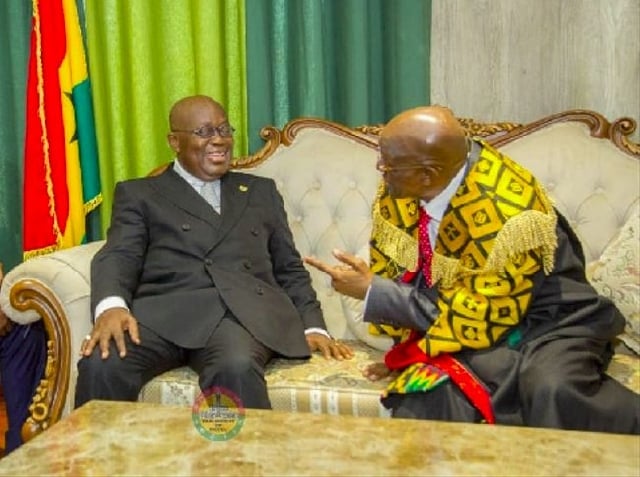Investigative journalist Manasseh Azure Awuni has provided compelling insights into the extraordinary election of Alban Sumana Bagbin as Speaker of the Parliament of Ghana on January 6, 2021. In an analysis based on interviews with key political figures, including First Deputy Speaker Joseph Osei-Owusu and Bryan Acheampong, Manasseh unveiled how the ruling New Patriotic Party (NPP) was outmaneuvered by the opposition National Democratic Congress (NDC). According to these interviews, President Nana Addo Dankwa Akufo-Addo realized that the NPP was at a strategic disadvantage and counselled his party to concede the election rather than pursue a potentially futile fight. Manasseh noted that this admission highlights the sophisticated political landscape in which both parties operate and sheds light on the NPP’s unexpected struggle during a crucial parliamentary election.
The NDC’s triumph was attributed to a well-organized and calculated strategy led by Mohammed Mubarak Muntaka, the MP for Asawase, along with a cohort of 15 young MPs. Manasseh emphasized that the meticulous planning by the NDC took the NPP off-guard, turning what was expected to be a predictable electoral battle into a dramatic and unprecedented victory. Notably, Manasseh underscored the significance of unity and tactical coordination among NDC members, signifying that their approach was not just opportunistic but rooted in careful forethought and teamwork. This intricate planning formed the backbone of their campaign strategy, which proved effective in the high-pressure environment of Parliament during the election.
The strategic efforts began well before the actual election day, involving key figures, including former President John Dramani Mahama, who played a pivotal role in shaping the NDC’s game plan. Manasseh detailed how, on the day of the election, Mahama held critical meetings with newly elected NDC MPs at two hotels—the Ibis and Marriot—aimed at reinforcing party unity and discipline. Emphasizing the importance of a collective front, Mahama instructed the MPs-elect to leave their vehicles behind and travel together in a bus to the Parliament House. This logistical maneuver was intended to preempt any last-minute challenges or attempts to disrupt their assembly for the vote, indicating the NDC leaders recognized the importance of cohesion and focused execution leading up to the election.
Another critical aspect of the NDC’s strategy hinged on the clandestine arrival of MP-elect James Gyakye Quayson from Assin North, who was embroiled in legal challenges, including an injunction that threatened his participation in the electoral process. The successful, covert entry of Quayson into Parliament hours before proceedings began underscored the NDC’s commitment to ensuring every available vote was accounted for, thereby solidifying their chances for victory. Manasseh pointed to this maneuver as a testament to the intricate planning and determination exhibited by the NDC members, as they contended with legal hurdles while simultaneously striving for parliamentary power.
The election of Alban Bagbin as Speaker marked a significant turning point in Ghanaian parliamentary history, being the first time an opposition member was elected to this pivotal position. This outcome not only highlighted the NDC’s strategic brilliance but also reshaped the political dynamics of the legislature. Bagbin’s election signified a shift in power dynamics, raising questions about the future trajectory of NDC-NPP relations and the broader implications for governance in Ghana. Manasseh’s chronicling of these events not only informs readers about the specifics of the election but also reflects on the contest of ideas and strategies that define Ghana’s political landscape.
In addition to recounting the details of the election, Manasseh’s reflections are encapsulated in his recent book, “The President Ghana Never Got,” which delves into various facets of Ghana’s political history and present. Through this work, he provides a comprehensive examination of the country’s political evolution, engaging with significant historical moments and their implications for Ghana’s populace. His analysis of the parliamentary election transcends mere reporting; it invites readers to understand the complexities and unpredictable nature of political competition in Ghana, thereby enriching their comprehension of the socio-political environment and its evolution over time.














